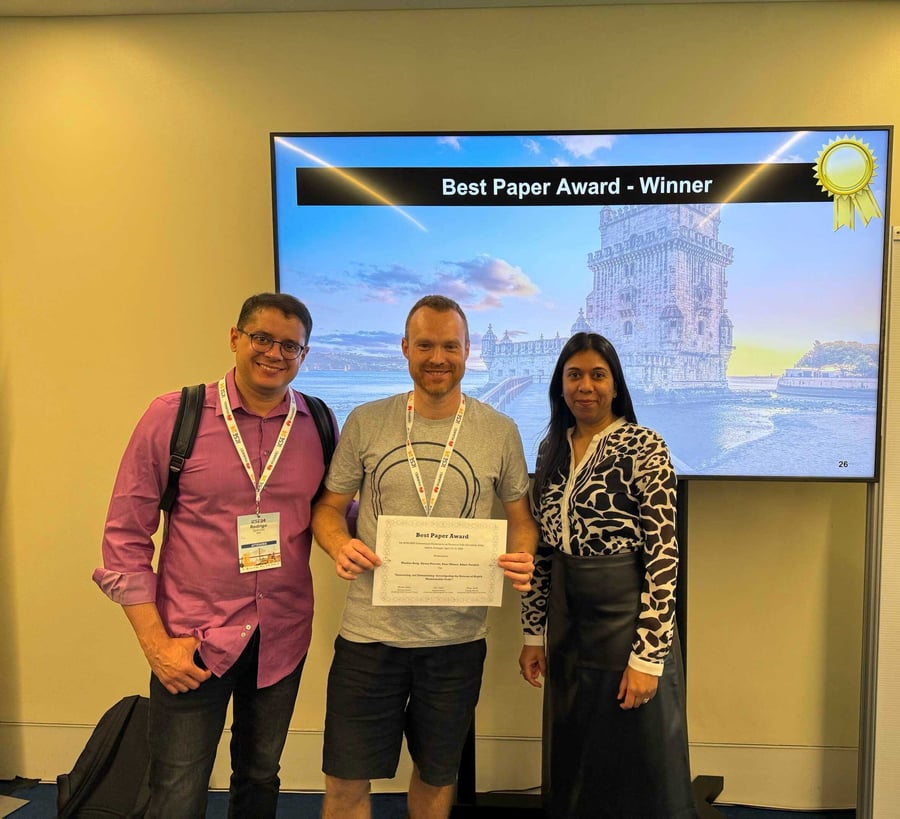CodeScene is thrilled to announce that we have just been honored with the prestigious award for the best technical paper.
1st prize for the Best Paper Award at 7th ACM/IEEE International Conference on Technical Debt
Our paper, 'Increasing, not Diminishing: Investigating the Returns of Highly Maintainable Code,' authored by Markus Borg, Principal Researcher, along with Enys Mones, Adam Tornhill, and Ilyana Pruvost, has received widespread recognition for its groundbreaking insights in the field of technical debt.
This achievement underscores our commitment to advancing the understanding and management of software complexity. We are immensely proud of this accomplishment and grateful for the opportunity to contribute to the ongoing dialogue in software engineering.
Markus Borg, our Principal Researcher, was at the conference in Lisbon to present the paper.
"We are deeply honored to have received this award. Managing technical debt is a key business concern, and CodeScene offers unique opportunities in this area. Receiving recognition from the scientific community is profoundly meaningful to us, it serves as a strong affirmation that our data lake is valuable and that our analytical approach is sound. Few tool vendors can showcase an equally research-based foundation."

From the left: Rodrigo Spinola, Program Co-Chair, Virginia Commonwealth University, United States, Markus Borg, Principal Researcher, CodeScene, Zadia Codabux, Program Co-Chair, University of Saskatchewan, Canada
Increasing, not Diminishing: Investigating the Returns of Highly Maintainable Code
This research explores how the quality of source code affects business outcomes and the implications for software development organizations. Key questions include how code health relates to defect counts and development time, and how different levels of code health impact value creation.
To answer these questions, the researchers analyzed data from 46,000 source code files. They used polynomial regression to examine the correlation between code health and defect counts, and developed a pragmatic model to assess value creation.
Their findings show that:
- Code health has a negative correlation with defect counts for low and high levels of code health, with no clear correlation in between.
- Development time decreases steadily as code health improves, with uncertain trends at extreme code health levels.
The study also reveals non-linear relationships between code health and value creation, with increasing returns at higher levels of code health.
The study's findings underscore the significance of improving code maintainability, emphasizing that exceptional code quality is not merely a developer's vanity metric but a crucial factor supporting evolvability for the whole business. The researchers urge organizations to better communicate the business value of code quality to executive levels to inform strategic refactoring decisions. Read the full paper and reach out the us with any questions.